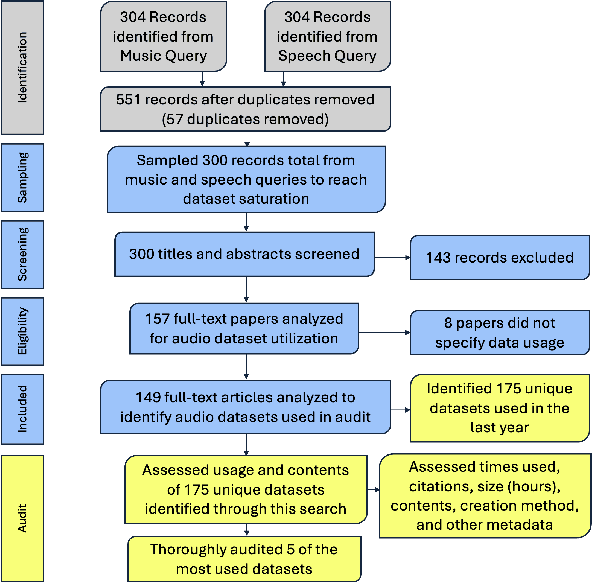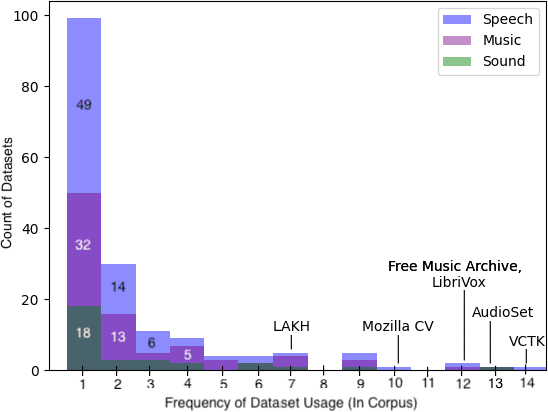Harry H. Jiang
Data Defenses Against Large Language Models
Oct 17, 2024



Abstract:Large language models excel at performing inference over text to extract information, summarize information, or generate additional text. These inference capabilities are implicated in a variety of ethical harms spanning surveillance, labor displacement, and IP/copyright theft. While many policy, legal, and technical mitigations have been proposed to counteract these harms, these mitigations typically require cooperation from institutions that move slower than technical advances (i.e., governments) or that have few incentives to act to counteract these harms (i.e., the corporations that create and profit from these LLMs). In this paper, we define and build "data defenses" -- a novel strategy that directly empowers data owners to block LLMs from performing inference on their data. We create data defenses by developing a method to automatically generate adversarial prompt injections that, when added to input text, significantly reduce the ability of LLMs to accurately infer personally identifying information about the subject of the input text or to use copyrighted text in inference. We examine the ethics of enabling such direct resistance to LLM inference, and argue that making data defenses that resist and subvert LLMs enables the realization of important values such as data ownership, data sovereignty, and democratic control over AI systems. We verify that our data defenses are cheap and fast to generate, work on the latest commercial and open-source LLMs, resistance to countermeasures, and are robust to several different attack settings. Finally, we consider the security implications of LLM data defenses and outline several future research directions in this area. Our code is available at https://github.com/wagnew3/LLMDataDefenses and a tool for using our defenses to protect text against LLM inference is at https://wagnew3.github.io/LLM-Data-Defenses/.
Sound Check: Auditing Audio Datasets
Oct 17, 2024



Abstract:Generative audio models are rapidly advancing in both capabilities and public utilization -- several powerful generative audio models have readily available open weights, and some tech companies have released high quality generative audio products. Yet, while prior work has enumerated many ethical issues stemming from the data on which generative visual and textual models have been trained, we have little understanding of similar issues with generative audio datasets, including those related to bias, toxicity, and intellectual property. To bridge this gap, we conducted a literature review of hundreds of audio datasets and selected seven of the most prominent to audit in more detail. We found that these datasets are biased against women, contain toxic stereotypes about marginalized communities, and contain significant amounts of copyrighted work. To enable artists to see if they are in popular audio datasets and facilitate exploration of the contents of these datasets, we developed a web tool audio datasets exploration tool at https://audio-audit.vercel.app.
 Add to Chrome
Add to Chrome Add to Firefox
Add to Firefox Add to Edge
Add to Edge